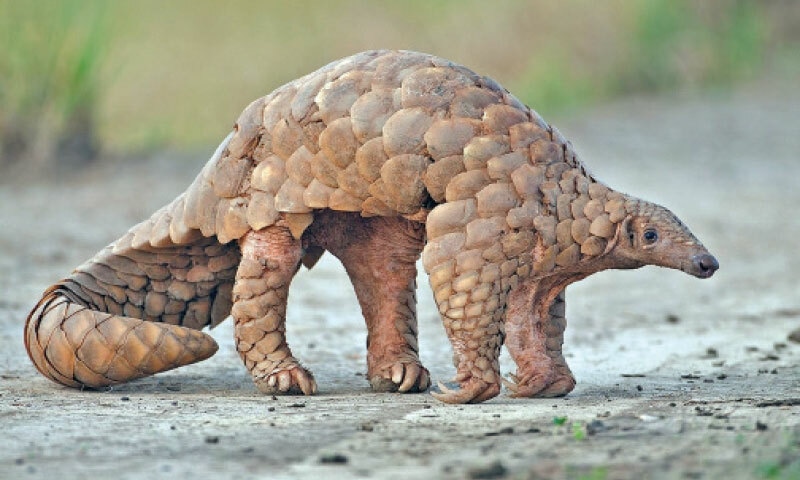ISLAMABAD: The endangered species of pangolins are thriving in the Margalla Hills National Park (MHNP). It is a scaly anteater, useful to protect forest trees from termites but also the most trafficked mammal in the world.
The MHNP homes about 38 mammals, 27 reptiles and over 600 plant species. No doubt it is the habitat of the endangered scaly anteater under threat of poaching, hunting and human conflicts, Islamabad Wildlife Management Board (IWMB) Manager Operations Sakhawat Ali told this news agency.
He said IWMB officials had confiscated around six pangolins from poachers and released them into the wild.
The official said protection of species leads to preservation and then to conservation that helps completely protect the environment. Overpopulation of any wild species needs management which is the fourth step of the above mentioned ones, he said.
Pakistan Wildlife Foundation (PWF) Vice Chairman Safwan Ahmed added that there were eight species of pangolin, four each in Asia and Africa, and it was not found anywhere else in the world. All species of pangolins are endangered.
The Chinese pangolin is near extinction or critically endangered. He said the Indian pangolin species was found throughout the country except Gilgit-Baltistan. The scales of pangolin are used by the mammal for its defence and that is why it is called a scaly anteater termites.
In the past two decades, he said, pangolins were over-hunted globally for medicinal purposes. Pangolin’s soup was allegedly consumed by the Chinese elite as a cure to many diseases but it was not proven scientifically.
Initially, gypsies used to poach and sell it for Rs20,000 to smugglers who sold it internationally for Rs400,000 which has now increased to Rs2 million. He regretted that regional bodies established to stop pangolins’ poaching had failed to achieve their goal.
A survey in 2019 found no species of pangolins in their habitats in Karak and D.I. Khan. During the survey, he said, there were many myths attached with pangolins.
In Punjab, people call it sinister and believe that it creates burrows in graves. He said pangolins were only found in Potohar region of Punjab as in central Punjab intensive cultivation completely vanished rodents and reptiles of all species.
Interestingly, he said, a myth in Azad Kashmir says if one hangs pangolin’s scales around the neck of a cow or buffalo it will never lose its fertility and her calf would be protected from wild animal attacks. In Sindh, it is considered ominous and its scales are used for black magic whereas in Balochistan women with infertility were given ground scales to bear children, he added.
To a question, he said in Islamabad he witnessed pangolins twice a year and also received phone calls from volunteers in F-7, F-8 and G-9 to report presence of pangolins.
He said they were mainly residing in these sectors due to nullahs and old vegetation suitable for their survival. He said 99pc people do not dare to touch a pangolin due to its scary appearance with the perception that it may harm them which is completely wrong as it’s a very innocent animal.
Commenting on the ecological role of pangolins, he said Potohar forests were predominantly of acacia modesta or phulai trees that were ill due to the presence of termites and absence of pangolins.
The remedy is to develop breeding centres at every 10 square kilometres or place two pairs of pangolins in every 100 square km. Also, there should be a breeding and rehabilitation centre to protect and increase its number.
Published in Dawn, January 29th, 2022












































